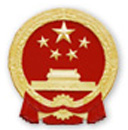DUSHANBE (Satrapia) — Prime Minister of Tajikistan Kohir Rasulzoda met with the general auditor of the National Audit Office of the People’s Republic of China (CNAO) Hue Ze Chun. At the meeting, issues of bilateral and multilateral cooperation in the areas of interest were discussed.
It was highlighted that the Audit Chamber of the Republic of Tajikistan and the National Audit Office of the People’s Republic of China are active members of regional and international organizations and the council of heads of the highest audit body of the member states of the Shanghai Cooperation Organization (SCO).
The parties expressed interest in establishing cooperation between the Chamber of Accounts of the Republic of Tajikistan and the National Audit Office of the People’s Republic of China and regarded the importance of using mutual opportunities and experience to strengthen cooperation in this direction.
 The National Audit Office of the People’s Republic of China (NAO) is the supreme audit institution in the People’s Republic of China. It was established in 1983. It is a cabinet-level Department Constituting the State Council and under the leadership of the Premier.
The National Audit Office of the People’s Republic of China (NAO) is the supreme audit institution in the People’s Republic of China. It was established in 1983. It is a cabinet-level Department Constituting the State Council and under the leadership of the Premier.
Since its founding, CNAO has establishes cooperative relations and maintains exchanges in various forms in the field of government auditing with more than 150 countries. CNAO has signed bilateral agreement of cooperation (or Memorandum of Understanding) with 32 supreme audit institutions worldwide. In the arena of international audit, CNAO is an active member of the International Organization of Supreme Audit Institutions (INTOSAI) and the Asian Organization of Supreme Audit Institutions (ASOSAI), and has conducted various activities of multilateral exchange and cooperation under the framework of INTOSAI and ASOSAI respectively.
Chinese accounting standards are unique because they originated in a socialist period in which the state was the sole owner of industry. Therefore, unlike Western accounting standards, they were less a tool of profit and loss, but an inventory of assets available to a company. In contrast to a Western balance sheet, Chinese accounting standards did not include an accounting of the debts that a corporation holds, and were less suitable for management control than for accounting for tax purposes.
This system of accounting was widely considered to be unsuitable for managing corporations in a market economy. In 2006, the Chinese government introduced a revised accounting law. This was the fruit of considerable discussion and protracted debate, involving the Ministry of Finance, members of the International Accounting Standards Board (IASB) and representatives of some Chinese firms.
This revised law marked a large step forward for the continuing integration of world trade and capital markets, with China adopting a significant number of the accounting standards laid out by the International Accounting Standards Board. The old Chinese Accounting Standards (CAS) were largely replaced by the International Financial Reporting Standards (IFRS), to bring China more in line with the rest of the world. The similarity between the new Chinese accounting standards and the IFRS is almost 90–95%.

